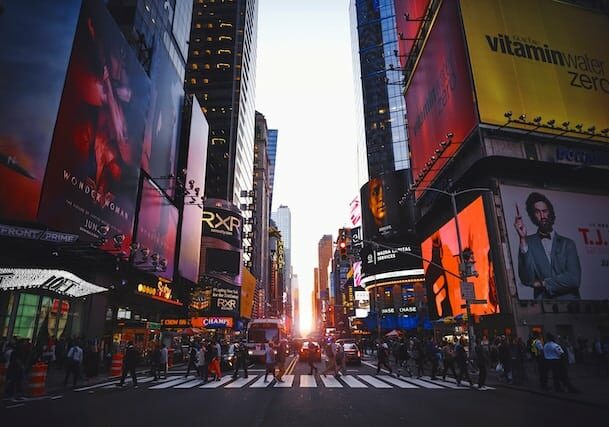What makes a country “rich”? In 2025, the answer depends on how you measure it. Some nations lead with massive economies, others with high average incomes or accumulated national wealth.
This article ranks the richest countries in the world using key economic indicators like GDP, GDP per capita, and national net worth. It also takes a broader view, considering factors like quality of life, education, and social progress to explore what wealth really means on a global scale.
World's Richest Countries by Gross Domestic Product (GDP)

It enables a country’s policymakers and central banks to accurately judge whether the economy is expanding or contracting, whether it needs to be reinforced or repressed, and if economic threats such as a recession or widespread inflation loom on the horizon.
However, a rich country with a high overall GDP may misrepresent how well it is actually doing economically. According to a study by the International Monetary Fund on the richest countries, China’s GDP for 2022 was $19.24 trillion. However, due to the large size of China’s population, this figure gives a GDP per capita output of just $13,626.
If you’re looking for a more accurate determinant of how rich a country is GDP-wise, you should look at the average contribution to the economy per person. This is referred to as GDP per capita. European and Asian countries rule GDP per capita, with 7 out of the top 10 being from these regions.
According to the International Monetary Fund’s projections for 2025, the wealthiest countries in the world by GDP are:
Rank | Country | GDP | |
1 | Luxembourg | $154,915 | |
2 | Singapore | $153,609 | |
3 | Liechtenstein | $139,100 | |
4 | Macao (SAR) | $140,246 | |
5 | Ireland | $131,548 | |
6 | Qatar | $118,762 | |
7 | Bermuda | $106,866 | |
8 | Norway | $106,540 | |
9 | Switzerland | $98,145 | |
10 | Brunei | $95,039 | |
The many economic powerhouses in Europe and Asia demonstrate valid reasons to relocate there. Several tax haven countries with strict laws on financial protection, universal deposit insurance, and tightly regulated financial institutions indicate that these are the perfect regions to help protect global wealth.
The consistent foreign investment and high per capita wealth of residents in particularly European Union nations means they’re earning very high average wages compared to the rest of the world. This indicates that developed nations in the EU – like Malta, which offers an investment program for citizenship – are some of the best places for American expats to retire abroad or to set up shop and build a new life.
Richest Countries in the World by Net Worth

This factor measures how much wealth a nation possesses at a given time and the size of its international monetary fund.
It’s a critical component of how a country’s credit rating is scored. An independent credit rating agency carries out the credit rating assessment upon the request of the sovereign state to investigate its financials and determine its creditworthiness.
Here are the wealthiest nations by net worth:
- United States 🇺🇸 – $139,866B total wealth
- China 🇨🇳 – $84,485B total wealth
- Japan 🇯🇵 – $22,582B total wealth
- Germany 🇩🇪 – $17,426B total wealth
- France 🇫🇷 – $15,989B total wealth
- United Kingdom 🇬🇧 – $15,972B total wealth
- India 🇮🇳 – $15,365B total wealth
- Canada 🇨🇦 – $11,263B total wealth
- Italy 🇮🇹 – $11,020B total wealth
- South Korea 🇰🇷 – $9,890B total wealth
The above list was compiled by the UBS and Credit Suisse and published in 2023, pertaining to the total wealth of countries in 2022.
China and the United States have been the front-runners for the world’s first and second richest countries over the last ten years.
China especially has managed to edged closer to the crown as the richest in the world all thanks to its abundance of natural resources, export-orientated economy and dominance in manufacturing of electronics, machinery, and textiles.
Countries can place themselves among the world’s richest nations in several ways. A British overseas territory like the famous tax haven, the Cayman Islands, has relaxed government tax rules with zero income tax rates, attracting substantial foreign direct investment and the redirection of significant financial resources.
The economic engine of countries in the Middle East, such as Saudi Arabia, the United Arab Emirates, and Qatar, is driven by vast natural resources like natural gas and oil.
More of the richest countries in net wealth, like South Korea and Germany, dominate high-tech industries and the production of goods such as mobile phones and motor vehicles that are essential in our daily lives today. They’ve managed to maintain strong economies, significant investments, and continued economic development.
That said, there’s only one clear winner when considering all the factors determining the richest countries based on net worth. According to Credit Suisse, the wealthiest nation in the world in 2022 was the United States with a net wealth of $145.8 trillion.
There are several reasons for this:
- The US has a large and diversified economy, which helps the country remain relatively resilient to economic shocks. This provides an advantage over competing countries, helping create wealth and stimulate growth across various industries and sectors.
- The US has a strict rule of law and property rights culture that protects people’s ability to accumulate wealth.
- The US dollar is the world’s dominant reserve currency. The World Bank and many central banks worldwide prefer to hold US dollars and dollar-backed securities, so the demand for international dollars remains strong. As a result, the US can borrow more cheaply, at lower interest rates, than it would otherwise.
World's Richest Countries by GDP Per Capita

Concerning the richest country in the world, per capita relates to the median numbers of net worth per person and the amount of money earned per person in a particular nation or geographic region.
Per capita income determines the average income per person for an area. It also determines Purchasing Power Parity (PPP) and is a decisive metric for organizations like the United Nations to evaluate the standard of living and quality of life.
Countries like Germany and the United Kingdom may have a substantially lower per capita net worth than other nations with a lower net worth due to population size. This is evident from small countries like Singapore and Luxembourg being on the list of the richest in the world due to the total value of financial assets being divided amongst a smaller number of people.
According to the 2024 UBS Global Wealth Report, the United States currently hosts the most millionaires, nearly 22 million people with China in second place with 6 million people being millionaires. This is double the number of third place United Kingdom.
The top ten countries with the most average wealth in USD per adult is:
- Switzerland🇨🇭- $709,612
- Luxembourg 🇱🇺 – $607,524
- Hong Kong SAR 🇭🇰 – $582,000
- United States 🇺🇸 – $564,862
- Australia 🇦🇺 – $546,184
- Denmark 🇩🇰 – $448,802
- New Zealand 🇳🇿 – $408,231
- Singapore 🇸🇬 – $397,708
- Norway 🇳🇴 – $382,575
- Canada 🇨🇦 – $375,800
Since the inception of the Global Wealth Report 15 years ago, the total global wealth has been reported to have fallen in USD terms from the year before only three times. During the financial crisis of 2008, in 2015 and once again in 2022.
The most recent fall in 2022 was due to both equities and bonds dropping across all major markets, wiping out the benefits of asset class diversification in investment portfolios. Luckily, the world has since recovered.
Wealth in the Asia-Pacific region has seen rapid growth, but at the same time debt in this region has spiraled upwards. Total debt in this region has grown by over 192% since 2008 which is more than twenty times that of Europe, Middle East and Africa and more than four times that of the Americas.
Richest Countries By Gross National Happiness

It measures economic happiness and moral progress, and was meant to serve as a counterpoint to GDP. Rather than focusing on quantitative economic measures, the GNH takes into account an evolving mix of quality-of-life factors.
The GNH Index is a single-number index of 33 indicators under nine domain tiers. Since 2018, Finland has topped the list of happiest countries in the World Happiness Report.
Europe dominated the list, with five out of the 10 countries being a part of the EU and two additional countries being a part of the continent:
- Finland 🇫🇮 – 7.736
- Denmark 🇩🇰 – 7.521
- Iceland 🇮🇸 – 7.515
- Sweden 🇸🇪 – 7.345
- Netherlands 🇳🇱 – 7.306
- Costa Rica 🇨🇷 – 7.274
- Norway 🇳🇴 – 7.262
- Israel 🇮🇱 – 7.234
- Luxembourg 🇱🇺 – 7.122
- Mexico 🇲🇽 – 6.979
The 33 indicators give a balanced view of what makes a country’s inhabitants happy. These range unencumbered international travel (in other words, offering the best passports for expats) to the availability of green spaces in urban areas. It also measures the average life expectancy of citizens and their generosity towards each other.
Scandinavian countries tend to dominate the list, leading the world in accessible education, low corruption, functioning democracies, and welfare benefits.
Richest Countries by Human Development Index
The Human Development Index (HDI) was introduced as part of the United Nations Development Programme (UNDP). The UNDP was put together to help developing countries eliminate widespread poverty and achieve sustainable economic growth and prosperity.
The HDI places the focus on a country’s people and their capabilities to assess its development instead of only using economic growth as a barometer of potential.
The HDI gives a broader overview of the inequalities between regions by measuring the average achievement in key dimensions of human development. These include focus on the top countries with the best education (knowledge) and average wages per person (standard of living).
HDI is particularly relevant to those looking for the best places to retire in the world as it highlights which countries excel in the areas of health and wellness as well as has a high life expectancy.
Indicators are combined into a single number between 0 and 1.0 and split among four tiers: The lowest (below 0.55) for low human development and the highest (above 0.8) for very high human development.
Here’s the top 10 list:
- Switzerland 🇨🇭- 0.967
- Norway 🇳🇴 – 0.966
- Iceland 🇮🇸 – 0.959
- Hong Kong (SAR) 🇭🇰 – 0.956
- Denmark 🇩🇰 – 0.952 (tied with Sweden)
- Sweden 🇸🇪 – 0.952 (tied with Denmark)
- Germany 🇩🇪 – 0.950 (tied with Ireland)
- Ireland 🇮🇪 – 0.950 (tied with Germany)
- Singapore 🇸🇬 – 0.949
- Australia 🇦🇺 – 0.946
Despite being a small country, Switzerland and other European countries similar to it came out on top due to high average life expectancy, high average annual incomes, universal health care, and access to free education.
How Can Global Citizen Solutions Help You?
Global Citizen Solutions is a boutique migration consultancy firm with years of experience delivering bespoke residence and citizenship by investment solutions for international families. With offices worldwide and an experienced, hands-on team, we have helped hundreds of clients worldwide acquire citizenship, residence visas, or homes while diversifying their portfolios with robust investments.
We guide you from start to finish, taking you beyond your citizenship or residency by investment application.
Frequently Asked Questions about the Richest Countries
What are the richest countries in the world?
The top 10 richest countries in the world (according to its GDP per capita):
- Switzerland
- Luxembourg
- Hong Kong SAR
- United States
- Australia
- Denmark
- New Zealand
- Singapore
- Norway
- Canada
What is the richest country in Europe?
The richest country in Europe is Luxembourg with a $141,080 USD per capita GDP.
How does the richest country in Europe compare to the rest of the world?
Luxembourg’s GDP per capita is significantly higher than the world average, with estimates placing it among the highest globally, often exceeding $100,000 USD, while the world average is around $10,000-$13,000 USD.
Which country has the highest taxes in the world?
Among the countries with the highest taxes, Ivory Coast stands head and shoulders above the rest. It has a 60% income tax rate.
Is Singapore a rich country?
Singapore is widely known as one of the most prosperous and wealthy countries in the world. It has a high GDP per capita, well-developed infrastructure, a strong financial services sector, and a well-developed economy.
Is Hong Kong a wealthy region?
Yes, Hong Kong is considered a wealthy region, often ranking among the world’s richest based on GDP per capita and other economic indicators.
What are the biggest economies in the world?
The following 10 countries have the biggest economies:
- United States – $30.340 trillion
- China – $19.530 trillion
- Germany – $4.920 trillion
- Japan – $4.390 trillion
- India – $4.270 trillion
- United Kingdom – $3.730 trillion
- France – $3.280 trillion
- Italy – $2.460 trillion
- Canada – $2.330 trillion
- Brazil – $2.330 trillion
What factors determine the richest countries in the world?
Economic diversification, natural resources, industrial capacity, political stability, tax policies and financial sector size determine ranking as one of the richest countries in the world.
What country has the largest net worth globally?
The United States consistently has the largest net worth, boasting the highest number of millionaires and taking up a large portion of global wealth. It also has the largest number of billionaires, with China being a close second.
How does population size affect a country’s per capita wealth?
Countries with a higher GDP per capita tend to be industrial and developed and have smaller populations compared to others with the United States being an exception to the rule.
What are the key industries driving the wealth of the richest countries?
The key industries driving the wealth of the richest countries include technology, manufacturing, financial services, and natural resources, as long as they’re managed efficiently.

 Gizane Campos
Gizane Campos
 The
The 

